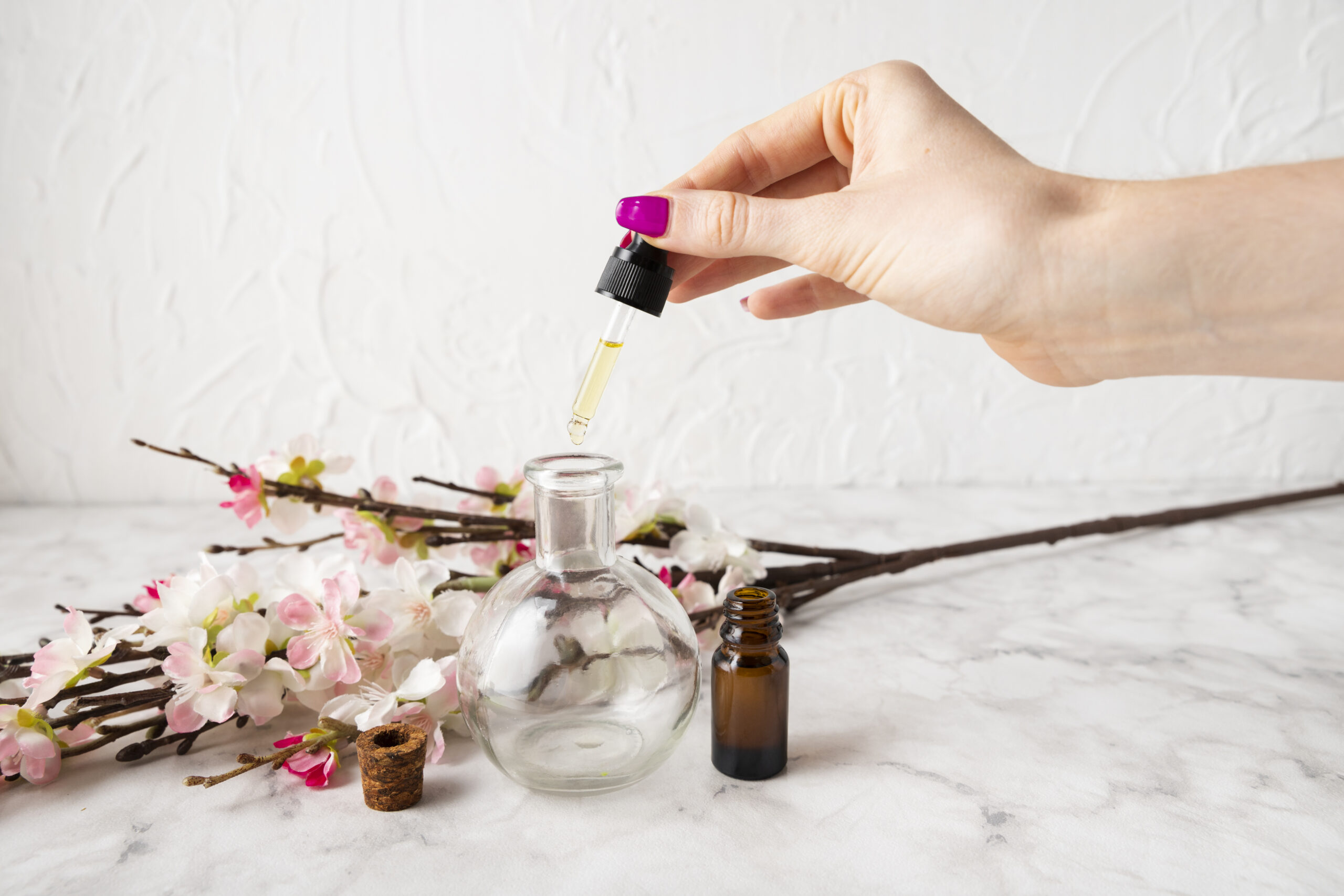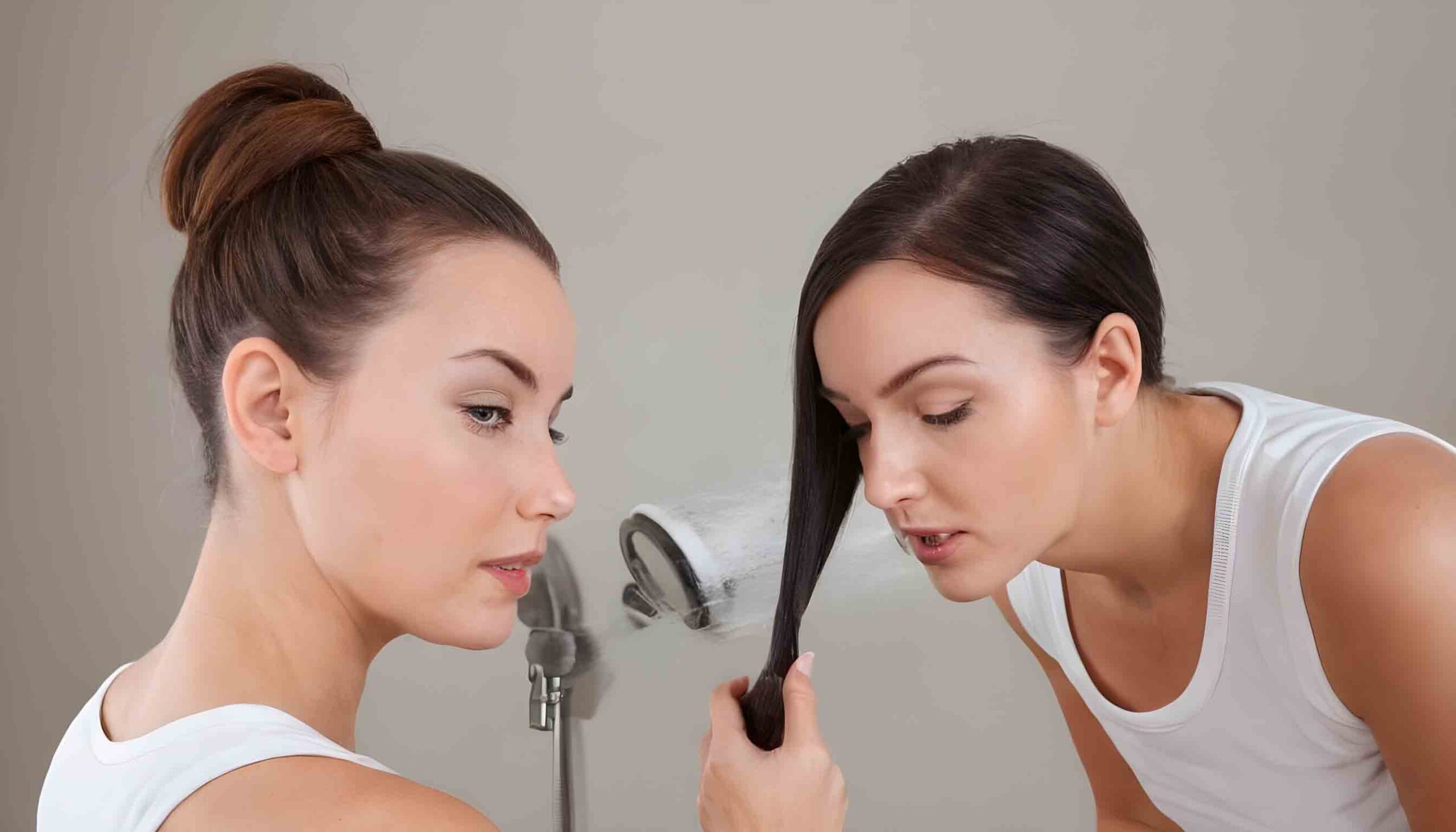Essential oils for edema, also known as fluid retention or swelling, refers to the build-up of excess fluid in body tissues causing them to swell. It usually affects the arms, legs, hands, ankles, and feet but can also occur in other places like the face and abdomen.
Edema occurs when tiny filtration blood vessels (capillaries) in the body’s tissues leak fluid. This causes a build-up of fluid (mainly plasma) in the interstitial spaces between cells. Normally, the lymphatic system drains this excess fluid and returns it to the venous circulation via lymph vessels and ducts. However, if the lymphatic system is overwhelmed, slow, or damaged, drainage of fluid from tissues is impaired and swelling occurs.
Causes of edema
There are several causes of Essential oils for edema including:
- Pregnancy – due to hormones and pressure from the womb on veins
- Premenstrual fluid retention due to hormonal shifts
- Kidney disease – impaired fluid filtration
- Liver disease – impaired production of albumin which maintains fluid in the bloodstream
- Heart failure – impaired pumping leads to backup of blood and fluid leakage
- Medications like high blood pressure drugs, steroids, NSAIDs, hormones
- Allergic reactions trigger inflammation and plasma leakage
- Injuries, burns, and infections trigger inflammatory swelling
- Being immobile in bed for prolonged periods
- Sitting or standing for long periods e.g. on long-haul flights
Symptoms of edema
Symptoms of edema include:
- Swelling in arms, legs, hands, ankles, feet, or other parts of the body
- A puffy appearance to the skin over swollen areas
- Tight, shiny, stretched-looking skin over swollen areas
- Indentation or pitting when pressure is applied to swollen areas
- Feeling of heaviness, tightness, or discomfort in swollen limbs and tissues
- Restricted flexibility and movement in swollen joints like fingers, knees, and ankles
The Lymphatic system
The lymphatic system plays a key role in maintaining fluid balance and the removal of toxins, waste products, debris, viruses, and bacteria from body tissues. It consists of a vast network of lymphatic vessels, lymph nodes, lymph ducts, lymphocytes, and lymphoid organs.
Lymph fluid originates as blood plasma which leaks from capillaries into body tissues. It delivers nutrients and oxygen to cells and collects cellular debris, toxins, and pathogens. This lymph fluid then drains into lymphatic vessels and ducts. It passes through lymph nodes that filter and trap pathogens, unwanted matter, and damaged cells. Filtered lymph continues on to eventually rejoin the blood circulation via veins in the shoulders and chest.
| Component | Function |
|---|---|
| Lymphatic vessels | Drain and transport lymph through the body |
| Lymph nodes | Filter lymph and contain lymphocytes that destroy pathogens |
| Lymphocytes | White blood cells that fight infection |
| Thymus & Spleen | Lymphoid organs where lymphocytes mature |
For effective edema reduction, the lymphatic system needs to function optimally. Supporting lymphatic flow and drainage of congested, blocked, or sluggish areas of the body helps reduce swelling.
Causes of edema
There are numerous causes of edema including:
- Being overweight increases pressure on blood vessel walls
- A diet high in sodium causes fluid retention
- Kidney disease impairs fluid regulation leading to the accumulation
- Liver disease reduces albumin levels needed to maintain fluid in the bloodstream
- Blood clots obstruct veins causing fluid backup and leakage
- Chronic lung conditions impair the pumping of lymph fluid
- Varicose veins allow plasma to leak into tissues
- Pregnancy places extra demands on the circulatory and lymphatic systems
- Monthly hormonal shifts during menstruation cause swelling
- Standing or sitting for prolonged periods hinders lymph drainage
- Trauma, injury, or burns trigger inflammatory swelling
- Autoimmune diseases prompt inflammation
- Allergic reactions ignite swelling
- Medications like steroids, NSAIDs, calcium channel blockers, hormones and chemotherapy drugs
Symptoms of edema
The hallmark symptom of Essential oils for edema is swelling which can vary greatly in severity. Mild cases may go unnoticed or only cause slight tightness in a ring or shoes. More severe cases cause visible puffiness, enlarged limbs, stretched/shiny skin, and indentations from pressure. Edema symptoms include:
- Swelling in the arms, legs, ankles, feet, hands, face or abdomen
- A puffy appearance and spongy feel to the skin
- The skin over swollen areas appears stretched, shiny, and tight
- Applying pressure to swollen skin causes pitting or indentation which persists for some time after pressure is released
- Jewelry and clothing may feel tighter over swollen areas
- Heaviness, discomfort, tightness, or stiffness of swollen limbs or joints
- Reduced flexibility, restricted movement, and stiffness in swollen joints like fingers, knees, ankles
- Swollen limbs and joints may ache or throb
- Swelling may be worse at the end of the day and improve with rest and elevation
- Skin over swollen areas may appear dry and scaly
Self-help remedies for edema
There are several self-help techniques that can improve lymphatic drainage and reduce mild Essential oils for edema:
Exercise – Simple repetitive motions like walking, leg raises, ankle rolls, and flexing/rotating joints stimulate the muscular lymph vessels that pump fluid. Yoga is excellent for moving fluid through the body.
Elevation – Raise swollen legs above hip level on pillows to utilize gravity. Elevate swollen arms, hands, and feet when possible.
Massage – Gentle massage in the direction of lymph flow (toward nodes in the groin/armpits) encourages drainage. Effleurage, skin brushing, and lymphatic drainage techniques are beneficial.
Compression stockings – Provide pressure that helps pump fluid through lymphatic vessels. Compress swollen limbs.
Clothing – Avoid restrictive clothing and metal jewelry that can obstruct circulation and lymph flow.
Lose weight – Reduces pressure on blood vessels and lymph vessels.
Avoid standing/sitting for long periods – Change positions regularly, and stretch legs periodically.
Avoid dietary salt – Causes fluid retention, limit processed foods high in sodium.
Hydrate – Drink water to assist fluid balance. Avoid excessive fluids which can overload circulation.
Aromatherapy blends for edema
Essential oils for edema can help reduce edema and swelling due to their anti-inflammatory, circulatory boosting, diuretic, and decongestant effects. Always dilute essential oils before use with a carrier oil or lotion. Here are some beneficial aromatherapy blends:
| Essential oil blend | Benefits |
|---|---|
| Cypress, juniper berry, fennel, grapefruit | Diuretic action reduces fluid accumulation |
| Geranium, rosemary, lemon | Improves circulation and lymph flow |
| Lavender, roman chamomile | Calming, anti-inflammatory |
| Eucalyptus, pine, rosemary | Decongestant for swollen respiratory tract |
| Peppermint, ginger, black pepper | Analgesic for aching swollen joints |
Add 8-10 drops of your chosen oils to 1 ounce of carrier oil like coconut, jojoba, or grapeseed oil. For leg massage, add oils to 2 tablespoons of oil. For baths add oils to 1/4 cup of Epsom salts dissolved in warm bathwater and soak. Oils can also be diluted into unscented lotions.
Alleviating Edema with Essential Oil Blends: A Holistic Approach
Edema, characterized by swelling due to fluid build-up in body tissues, can find relief through the holistic healing power of essential oils. Blends of essential oils for edema not only offer natural remedies but also embody the principles of aromatherapy and alternative medicine.
Crafted with a holistic approach to wellness, these blends, featuring therapeutic oils like Cypress, Juniperberry, and Geranium, excel in promoting lymphatic drainage and reducing inflammation. Their soothing agents contribute to overall health and well-being, aligning with alternative healthcare practices and herbal solutions.
Incorporating these essential oil blends into your wellness practices can address the root causes of edema, such as poor circulation and lymphatic system imbalances. Whether massaged onto affected areas or added to a bathing blend with Epsom salt, these blends offer a self-care remedy that complements conventional treatments.
In conclusion, the integration of essential oil blends into your daily routine provides a holistic and natural approach to combat edema. Embrace the power of aromatherapy and therapeutic oils to elevate your well-being and address discomfort associated with swelling. Always seek advice and ensure safety, considering individual health conditions and consulting with a healthcare professional.
Tea Tree Essential Oil: Nature’s Solution for Edema Relief
Tea Tree essential oil, a powerhouse in aromatherapy and natural remedies, emerges as a holistic healing agent for edema. This alternative medicine, known for its healing properties, complements the principles of lymphatic drainage and inflammation reduction.
Incorporating Tea Tree into your wellness practices offers a holistic approach to circulatory health and plant-based treatments. Its soothing agents contribute to overall health and well-being, aligning with the holistic living philosophy of integrative medicine.
Applied through massage or incorporated into a bathing blend with Epsom salt, Tea Tree essential oil aids in reducing swelling, and addressing discomfort in body tissues, arms, and legs. Embrace this herbal solution as part of your self-care routine, recognizing its potential to promote fluid balance and toxin elimination.
In conclusion, Tea Tree essential oil stands out in addressing edema with its diuretic properties and holistic remedies. As you explore its benefits in aromatherapy and massage therapy, remember to prioritize your well-being, ensuring a safe and effective integration into your wellness lifestyle. Always seek professional advice, especially if dealing with specific medical conditions.
Essential Oil Blends for Swelling Legs, Ankles, and Feet: A Holistic Approach
In the realm of holistic healing, essential oil blends offer natural remedies for edema, fluid retention, and swelling in the legs, ankles, and feet. Harnessing the power of aromatherapy and massage therapy, these blends focus on promoting circulatory health and reducing inflammation. Integrative medicine enthusiasts often turn to plant-based treatments, incorporating Young Living essential oils such as Tea Tree for its diuretic properties and immune-boosting benefits. Utilizing self-help techniques like lymphatic drainage, these essential oil blends aim to bring circulatory balance, aid in toxin elimination, and support the overall well-being of the lymphatic system. Embracing alternative medicine, individuals explore the synergy of essential oils to enhance their holistic living journey.
Alleviating Edema Naturally: The Power of Topical Essential Oils
Discover the transformative effects of topical essential oils for edema, integrating the principles of aromatherapy and holistic healing into your self-care routine. As a natural remedy, these herbal extracts excel in lymphatic drainage and inflammation reduction, fostering overall wellness and circulatory health.
Embrace a holistic approach by incorporating plant-based treatments into your daily wellness practices. Topical essential oils, such as Cypress, Juniperberry, and Geranium, act as soothing agents, targeting discomfort in body tissues, arms, and legs. This alternative medicine, rooted in integrative practices and holistic living, harnesses therapeutic oils’ healing properties to promote fluid balance, toxin elimination, and immune response.
Explore the relaxation techniques of complementary medicine through the application of these oils. Elevate your well-being by incorporating topical essential oils into massage therapy, foot, and leg massages, or bathing blends with Epsom salt. As you prioritize your health, consider these holistic remedies as effective tools in preventing and addressing puffiness, tightness, and discomfort associated with edema.
Elevate Your Wellness: Young Living Essential Oils for Edema Relief
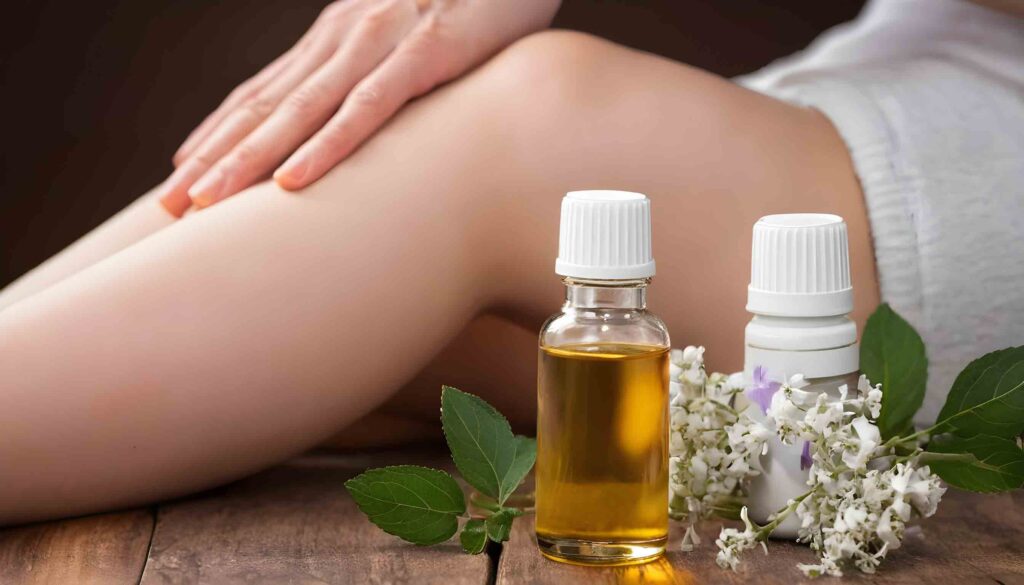
Unlock the natural healing potential of Young Living essential oils for edema, blending the benefits of aromatherapy and holistic approaches into your self-care regimen. As a pioneer in alternative medicine, Young Living offers herbal solutions that excel in promoting lymphatic drainage and reducing inflammation, contributing to overall circulatory health and wellness.
Experience the soothing agents and therapeutic oils in blends such as Cypress, Juniperberry, and Geranium, targeting swelling and discomfort in body tissues, arms, and legs. Embrace the holistic living philosophy, integrating these plant-based treatments into your wellness lifestyle. Young Living’s commitment to quality ensures the healing properties of these essential oils support immune responses, toxin elimination, and disease resistance.
Discover the art of complementary medicine by incorporating Young Living essential oils into massage therapy or creating bathing blends with Epsom salt. As you navigate edema symptoms, consider these holistic remedies as powerful tools for treatment and prevention, aligning with Young Living’s dedication to your health and well-being.
Using Essential Oils to Relieve Edema in Legs and Feet
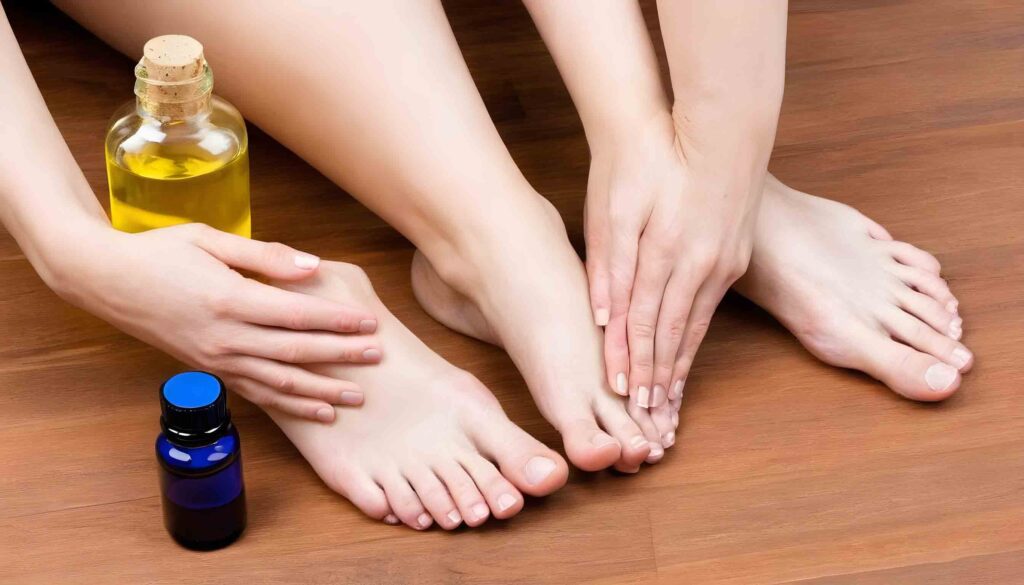
Edema, or swelling caused by fluid retention, often occurs in the legs and feet. While there are medical causes for edema that require professional treatment, essential oils can provide relief as a complementary remedy. Certain essential oils help address edema through their anti-inflammatory, circulatory stimulating, and diuretic properties.
Cypress and juniper berry essential oils exhibit diuretic effects that promote urination and flushing of excess fluids. Grapefruit essential oil contains the powerful diuretic compound limonene that helps the body eliminate stored water. Using these oils aromatically or topically can aid the body’s detoxification process and combat fluid retention.
Ginger, fennel, and black pepper essential oils boost circulation by dilating blood vessels and increasing blood flow. Improved circulation prevents blood and lymph fluid from pooling in the extremities. Massaging oils like peppermint and eucalyptus into the legs provides a cooling, anti-inflammatory effect that brings down swelling.
Lymphatic drainage massage using essential oils specifically targets edema caused by poor lymph circulation. Oils like grapefruit, lemon, and geranium help stimulate lymph flow when massaged from the toes upward toward lymph nodes. This manual technique effectively moves excess fluid out of tissues.
To address edema holistically, combine essential oils with lifestyle adjustments. Eliminating inflammatory foods, staying hydrated, reducing salt intake, elevating legs, exercising, and wearing compression socks all complement aromatherapy. Certain herbs and spices like turmeric also have natural diuretic properties.
Creating blends of the most effective essential oils lets you customize the aroma experience. For example, combine juniper berry, fennel, and ginger oils for an invigorating, circulatory blend. Or, mix soothing lavender with grapefruit and cypress for a relaxing, detoxifying aroma. Adding carrier oils enables safe topical use.
While essential oils cannot cure chronic edema conditions, they provide a drug-free way to find relief through natural compounds. However, their diuretic effects make hydration and doctor monitoring important. Overall, aromatherapy offers a holistic, therapeutic option to effectively reduce mild to moderate swelling in the legs and feet.
Harnessing Essential Oils to Reduce Fluid Retention
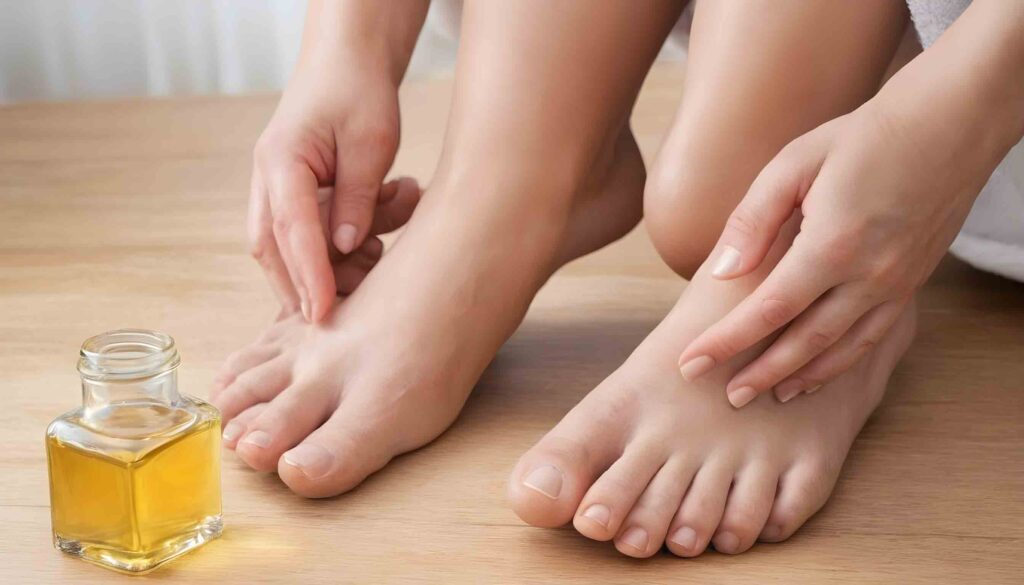
Fluid retention leads to swelling and puffiness, often in the legs and feet. Using essential oils is a natural way to find relief by supporting healthy lymph and fluid balance. Certain aromatic oils exhibit diuretic, lymphatic-stimulating, and detoxifying properties that can combat latent fluid buildup.
Oils like juniper berry, fennel, and cypress promote urination and flush out excess water and toxins. Grapefruit oil contains the powerful diuretic limonene to stimulate kidney function. Diffusing these oils can aid the body’s natural detoxification process and reduce fluid retention through gentle diuresis.
Essential oils also benefit the lymphatic system. Geranium, lemon, rosemary, and carrot seed oils help improve lymphatic circulation and drainage when massaged into the skin. This manual technique effectively moves fluid out of tissues by redirecting it toward lymph nodes for processing.
Certain lifestyle adjustments complement aromatherapy for fluid retention. Light exercise, elevating legs, compression garments, hydration, and reducing dietary sodium all support healthy lymph flow and water balance in the body. Herbs like dandelions act as natural diuretics as well.
To customize treatment, essential oils can be blended based on the individual and their needs. Soothing lavender and geranium oils work well together to simultaneously relax, detoxify, and stimulate circulation. Or invigorate with grapefruit, cypress, and lemon for an uplifting diuretic blend. Adding to unscented lotion enables safe topical use.
While aromatherapy oils do not replace medical treatment for chronic conditions, they provide a holistic way to find relief from occasional mild fluid retention. However, their potency warrants proper usage guidelines and doctor approval if on diuretics. Overall, strategically using essential oils helps restore equilibrium in the circulatory and lymphatic systems for reduced swelling.
Finding Relief from Water Retention with Young Living Essential Oils
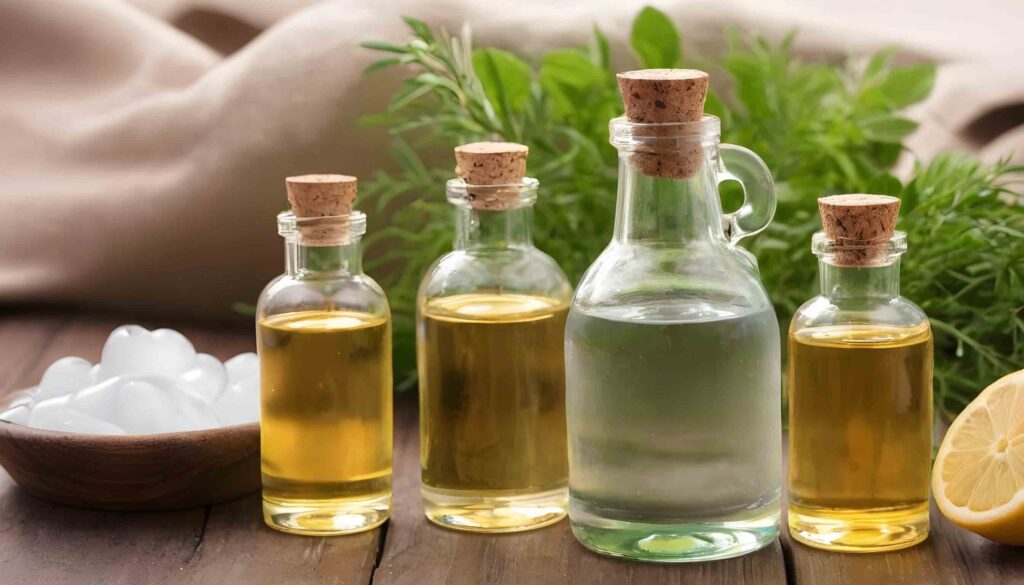
Water retention leading to swollen ankles, fingers, and a bloated appearance can be frustrating. Young Living offers natural essential oil products that can help reduce fluid buildup through their diuretic, circulatory, and lymphatic-stimulating properties.
Certain Young Living single oils have natural diuretic effects to gently flush excess fluids. Juniper berry, cypress, and grapefruit oils contain active compounds that promote urination and detoxification. Using these oils aromatically, topically, or in baths helps restore fluid balance.
Other oils boost circulation to prevent blood and lymph from pooling in the extremities. Young Living’s DiGize and lemongrass oils improve circulation and drainage when massaged into legs and feet. Combined with Epsom salt baths, these oils move fluid out of swollen tissues.
Custom oil blends maximize aromatherapy benefits. For a stimulating lymphatic blend, mix DiGize, juniper berry, and lemongrass. To calmly treat water retention, combine lavender, geranium, and grapefruit. Diluting oils enables safe topical use.
Lifestyle adjustments complement Young Living’s natural oils. Light exercise, compression socks, elevating legs, staying hydrated, and reducing dietary sodium all improve fluid balance holistically. Herbal supplements like dandelion act as natural diuretics too.
While professional medical treatment is needed for chronic edema, Young Living’s essential oils provide a drug-free, cost-effective way to find temporary relief from occasional mild fluid retention. However, proper usage guidelines are key for safety and effectiveness. Overall, incorporating certain oils into one’s routine helps restore equilibrium to the body’s circulatory and lymphatic systems.
Conclusion
Essential oils for edema is swelling caused by the accumulation of fluid in bodily tissues most often affecting the limbs. It has numerous causes including pregnancy, sedentary lifestyles, chronic health conditions, medications, injuries, and more. Supporting circulation and lymphatic drainage using simple self-help techniques, nutrition, exercise, and essential oils can help manage mild edema swelling. Seek medical advice for chronic, worsening, or severe edema to treat any underlying condition. When applied topically with care and caution, aromatherapy can be a helpful holistic tool for reducing edema.
Frequently Asked Questions Essential oils for edema
Which essential oil is good for edema?
Some of the best essential oils for reducing edema and swelling are cypress, fennel, juniper berry, grapefruit, geranium, lemon, rosemary, pine, eucalyptus, lavender, and chamomile. They have diuretic, circulatory boosting, and anti-inflammatory properties.
What essential oils make the swelling go down?
Cypress, fennel, juniper berry, and grapefruit oils have natural diuretic effects which help flush out excess fluid and reduce swelling. Anti-inflammatory oils like chamomile, lavender, and geranium also help reduce swollen tissues.
How do you stop edema naturally?
Natural ways to reduce edema include exercising to boost circulation, elevating swollen limbs, drinking plenty of water, massaging toward lymph nodes, wearing compression stockings, avoiding sodium, losing weight if overweight, and using essential oils like cypress, fennel, and grapefruit.
What herbs are good for edema?
Some herbs that help reduce Essential oils for edema through their diuretic and circulatory stimulating effects include dandelion, parsley, horsetail, juniper berry, corn silk, celery seed, marshmallow, goldenrod, hydrangea root, butcher’s broom, and prickly ash.
Can edema go away on its own?
Mild edema caused by things like menstrual cycles, pregnancy, constipation, minor injuries or long flights may go away on its own by using self-help remedies. However, chronic or worsening edema needs medical evaluation to identify and treat any underlying condition causing it.
Is Epsom salt good for edema?
Epsom salt baths can help reduce Essential oils for edema in the legs and feet due to the magnesium sulfate which draws out excess fluid through osmosis. It also relaxes muscles, eases aches, and improves circulation. Add a cup of Epsom salts and essential oils to a warm foot soak.
What happens if edema is left untreated?
If left untreated, chronic Essential oils for edema can lead to permanent tissue damage, chronic venous insufficiency, leg ulcers, thickening and hardening of skin, joint immobility, pain, infections, poor wound healing, reduced blood flow, and impairment of lymph drainage.
Can edema be cured permanently?
If there is an underlying condition causing chronic edema such as heart failure, liver disease, or kidney problems, treating the root cause can potentially cure edema. However, edema with no known cause can be managed with lifestyle changes, compression stockings, and medications but may not fully resolve.
When should you go to the doctor for edema?
See your doctor if Essential oils for edema come on suddenly, affect only one side of the body, worsen rapidly, cause extreme pain/redness/warmth, are accompanied by dizziness/confusion, or do not improve with self-care. Also, seek medical advice for chronic unexplained edema.
Can essential oils worsen edema?
In some cases Essential oils for edema may worsen edema so they should not be used without first consulting your doctor – for example with kidney disease or on medications that remove the fluid. Oils should always be diluted before use. Discontinue use if skin irritation occurs. Seek emergency care for swelling of the face/neck or difficulty breathing.
What Essential Oils Are Good for Swollen Legs and Feet?
Several essential oils are known for their anti-inflammatory and soothing properties, making them beneficial for reducing swelling in the legs and feet. Some recommended essential oils include:
- Peppermint Oil: Known for its cooling sensation, peppermint oil can help alleviate swelling and provide relief.
- Lavender Oil: Renowned for its calming properties, lavender oil can contribute to reducing inflammation and promoting relaxation.
- Chamomile Oil: Chamomile possesses anti-inflammatory and calming effects, making it useful for reducing swelling in the legs and feet.
- Eucalyptus Oil: With its refreshing scent, eucalyptus oil may help improve circulation and reduce swelling in the lower extremities.
What Oil Is Good for Swollen Ankle?
For swollen ankles, certain essential oils can be particularly beneficial:
- Frankincense Oil: Known for its anti-inflammatory properties, frankincense oil may help reduce swelling and promote overall joint health.
- Cypress Oil: Cypress oil has natural diuretic and anti-inflammatory effects, making it a suitable choice for swollen ankles.
- Lemon Oil: Lemon oil is believed to have detoxifying properties that may assist in reducing fluid retention and swelling.
- Ginger Oil: Ginger oil possesses anti-inflammatory and circulatory-stimulating properties, potentially aiding in reducing swelling around the ankle.
What Essential Oils Make Swelling Go Down?
To address swelling effectively, consider using essential oils with anti-inflammatory, diuretic, and circulation-enhancing properties. Some effective options include:
- Helichrysum Oil: Helichrysum is known for its anti-inflammatory effects and may contribute to reducing swelling and promoting healing.
- Juniper Berry Oil: Juniper berry oil has diuretic properties that may help eliminate excess fluid and reduce swelling.
- Tea Tree Oil: Tea tree oil possesses anti-inflammatory properties and may aid in reducing swelling associated with skin conditions.
- Rosemary Oil: Rosemary oil has anti-inflammatory and circulatory benefits that may assist in reducing swelling.
What Essential Oil Is Good for Fluid Retention?
To address fluid retention concerns, consider incorporating the following essential oils:
- Lemon Oil: Lemon oil is known for its diuretic effects, which may help reduce fluid retention.
- Geranium Oil: Geranium oil is believed to have diuretic properties and may support the body in eliminating excess fluids.
- Juniper Berry Oil: Juniper berry oil’s diuretic effects may assist in reducing fluid retention.
- Fennel Oil: Fennel oil is often used to alleviate water retention and may contribute to balancing fluids in the body.
Always dilute essential oils with a carrier oil before applying them to the skin, and consult with a healthcare professional if you have underlying health concerns or are pregnant before using essential oils.
What essential oil reduces edema?
- Cypress, fennel, juniper berry, and grapefruit essential oils can help reduce edema due to their natural diuretic properties.
How do you drain edema fluid naturally?
- Lymphatic drainage massage using essential oils like grapefruit, lemon, and geranium can help drain edema fluid. Staying hydrated, exercising, and taking diuretic herbs also help drain fluids.
What oil is good for swollen feet?
- Cypress, rosemary, and peppermint essential oils can relieve swollen feet when massaged topically. They reduce inflammation and improve circulation.
What is the best essential oil to reduce swelling?
- Grapefruit essential oil is considered one of the best for reducing swelling due to its potent diuretic limonene content. Juniper berry and cypress oils are also very effective.
Which oil is best for water retention?
- Juniper berry essential oil is often regarded as the best oil for treating water retention through its natural diuretic action.
What is the best essential oil for edema?
- Cypress and grapefruit essential oils are considered the best for edema as they stimulate lymphatic drainage and have strong diuretic properties.
What essential oil reduces swelling?
- Cypress, lemon, fennel, and grapefruit essential oils can help reduce swelling through their ability to flush out excess fluids as diuretics.
Is rosemary essential oil good for water retention?
- Yes, rosemary oil can help reduce water retention by improving circulation and stimulating the lymphatic system when applied topically.
What essential oils help water retention?
- Juniper berry, cypress, fennel, lemon, grapefruit, and rosemary essential oils help relieve water retention through diuretic and circulatory stimulating properties.
What essential oils reduce swelling?
- Grapefruit, cypress, lemon, fennel, juniper berry, and geranium essential oils can effectively reduce swelling caused by inflammation or fluid retention.
Does rosemary help water retention?
- Yes, rosemary essential oil can help reduce water retention by supporting circulation and lymphatic flow when used aromatically or in massage.
Does frankincense help with water retention?
- There is limited evidence that frankincense oil helps directly with water retention. It may help indirectly by reducing inflammation.
Other Essential Oils Articles You’ll Love:
- Natural Relief: Harnessing the Power of Essential Oils for Fluid Retention in Legs 2024
- Unveiling the Potential: Lupus And Essential Oils 2024
- Diuretic essential oils: Are they good for you and how can they help? 2024
- Unleashing Creativity : A Guide to Using Creativity Essential Oils 2024
- Understanding Lymphatic System: Aromatherapy Oils For Lymphatic Drainage 2024
- The Ultimate Guide to Oils for Lymph Drainage 2024
- Boosting Confidence: The Essential Oil Confidence Guide 2024

